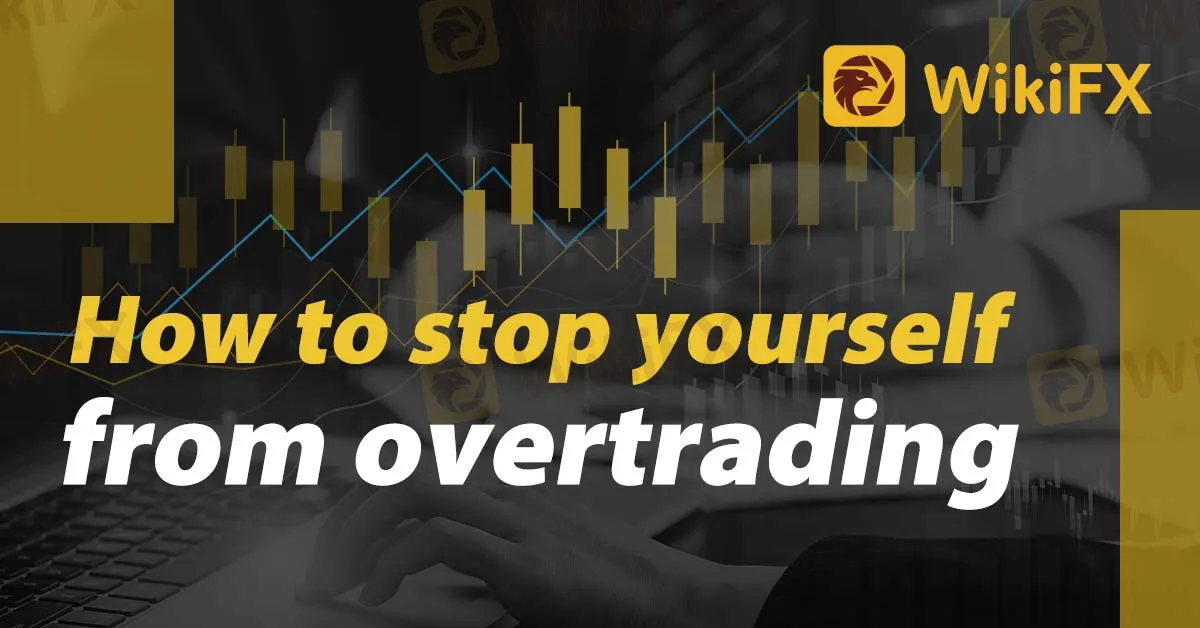简体中文
繁體中文
English
Pусский
日本語
ภาษาไทย
Tiếng Việt
Bahasa Indonesia
Español
हिन्दी
Filippiiniläinen
Français
Deutsch
Português
Türkçe
한국어
العربية
How to stop yourself from over trading
Abstract:Overtrading is a common problem among investors and traders. It occurs when an individual trades excessively, often to the point where it negatively impacts their overall profitability.

Overtrading is a common problem among investors and traders. It occurs when an individual trades excessively, often to the point where it negatively impacts their overall profitability. Overtrading can be caused by several factors, including emotional decisions, impulse trading, and a lack of discipline. Fortunately, there are several steps that you can take in order to reduce your tendency to overtrade.
1. Have a trading plan
Having a trading plan is one of the most important things that you can do to reduce overtrading. Your trading plan should include your risk tolerance, profit goals, and the specific securities or assets that you intend to trade. Having a plan will help you to stay focused and reduce the likelihood of making impulsive decisions.
2. Set specific trading goals
Setting clear trading goals can also help you to reduce overtrading. Its important to have specific goals for each trade, such as a profit target or a stop-loss limit. This will help you to stay on track and avoid making trades that are not in line with your overall trading strategy.
3. Avoid emotional decisions
Emotional decisions are a major cause of overtrading. Its important to remain calm and rational when making trading decisions. Avoid trading based on emotions such as fear or greed. Instead, focus on analyzing the data and making rational decisions based on your trading plan.
4. Use technical analysis
Technical analysis is a powerful tool that can help you to make better trading decisions. It involves analyzing charts and other data to identify trends and patterns. This can help you to make more informed decisions about when to buy or sell a particular security.
5. Use stop-loss orders
Using stop-loss orders can help you to reduce your risk when trading. A stop-loss order is an order to sell a security when it reaches a certain price point. This can help you to limit your losses and avoid overtrading.
6. Take breaks
Taking breaks from trading can also help you to reduce overtrading. Its important to take breaks throughout the day to clear your mind and reduce stress. This will help you to make better decisions and avoid impulse trading.
7. Seek professional help
If you find that you are still struggling with overtrading, it may be helpful to seek professional help. A financial advisor or trading coach can help you to identify the underlying causes of your overtrading and develop a personalized plan to overcome it.
In conclusion, there are several steps that you can take to reduce overtrading. By having a trading plan, setting specific goals, avoiding emotional decisions, using technical analysis, using stop-loss orders, taking breaks, and seeking professional help, you can improve your trading performance and reduce the negative impact of overtrading. Remember, successful trading requires a combination of knowledge, discipline, and self-control. So, always trade with caution and make informed decisions.

Disclaimer:
The views in this article only represent the author's personal views, and do not constitute investment advice on this platform. This platform does not guarantee the accuracy, completeness and timeliness of the information in the article, and will not be liable for any loss caused by the use of or reliance on the information in the article.
Read more

Why Do You Feel Scared During Trade Execution?
Trade execution is a pivotal moment for traders. It is when analysis turns into action, and potential profits or losses become reality. However, for many traders, this moment is accompanied by fear. Why does this happen, and how can you address it?

Pros and Cons of Choosing Unregulated Forex Brokers
Discover the pros and cons of unregulated forex brokers, explore risks, benefits, and key features, and learn how to evaluate their credibility with the WikiFX app.

5 Questions to Ask Yourself Before Taking a Trade
Before executing any trade, traders should pause and ask themselves critical questions to ensure they are making rational and well-informed decisions. Here are five questions to help you reflect on your strategy, manage risk, and control emotions before entering the market.

The Psychology of Investment Scams: Understanding Why Victims Fall Prey
Investment scams have become increasingly sophisticated, preying on human psychology to exploit vulnerabilities. While these fraudulent schemes promise extraordinary returns, they often rely on psychological tactics to deceive victims. Understanding these factors can help traders recognise and avoid falling for scams.
WikiFX Broker
Latest News
ASIC Sues Binance Australia Derivatives for Misclassifying Retail Clients
Top 10 Trading Indicators Every Forex Trader Should Know
WikiFX Review: Is FxPro Reliable?
Malaysian-Thai Fraud Syndicate Dismantled, Millions in Losses Reported
Trading frauds topped the list of scams in India- Report Reveals
WikiFX Review: Something You Need to Know About Markets4you
Revolut Leads UK Neobanks in the Digital Banking Revolution
Fusion Markets: Safe Choice or Scam to Avoid?
SEC Approves Hashdex and Franklin Crypto ETFs on Nasdaq
Malaysian Pensioner Loses RM823,000 in Fake Investment Scam
Currency Calculator


